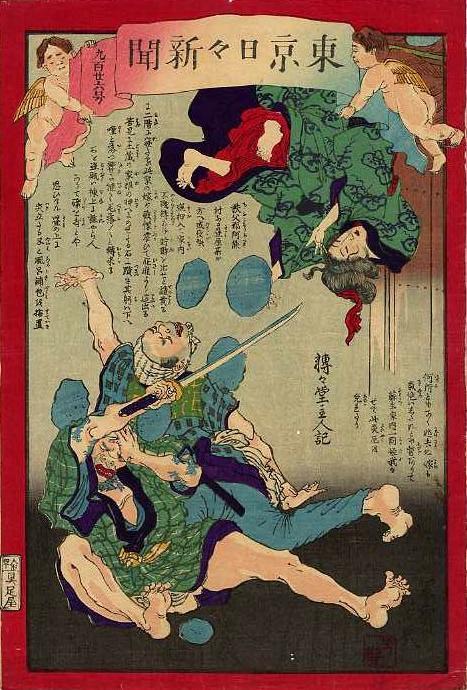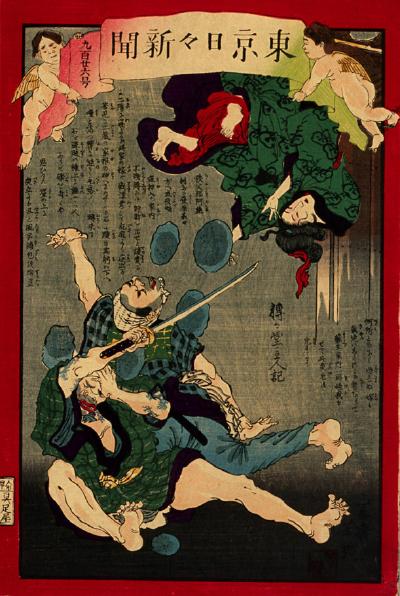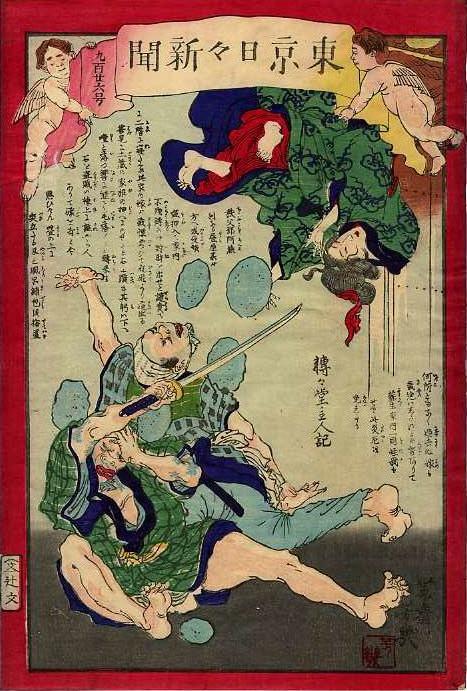Commentary
Akuma village (阿熊村 Akumamura) was since integrated into what is now Chichibu city in Saitama prefecture.
daughter-in-law reflects 嫁 (yome) -- someone's bride, but through the eyes of a parent or the head of a household, a woman who has married into the family as the wife of a son.
furoshiki bundles (風呂舗包 furoshikidzutsumi, furoshikizutsumi) are bundles of objects wrapped in square or rectangular cloths of various sizes. Familiar on streets until recently, furoshiki have been all but replaced by briefcases, backpacks, and assorted shopping bags. They are quickly disappearing even at engagement and wedding ceremonies, where they still might be used to wrap and present gifts.
Furoshiki come in all sizes, some large enough to carry or store sleeping futon. Robbers used medium sized furoshiki, made of a fairly course cloth, to carry away loot.
escaped calamity reflects 災厄を免れたり -- glossed "saiyaku o nogaretari" but also readable as "saiyaku o manugaretari" (were spared calamity). Either phrase expresses the notion that life is at the mercy of powers which determine its fortunes. Today, many popular magazines provide information about risks of calamity (厄 yaku) associated with dates of birth. Some people, most from habit, a few out of religious conviction, still resort to various rituals of exorcism (厄払い yakubarai) to rid themselves of such risk.


